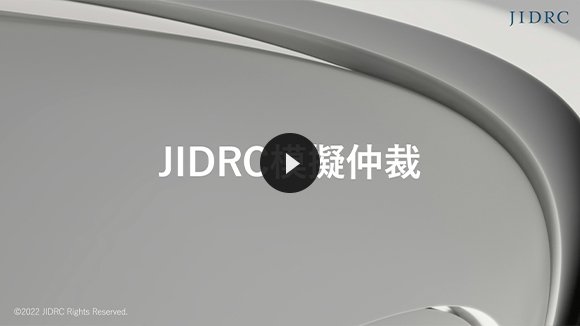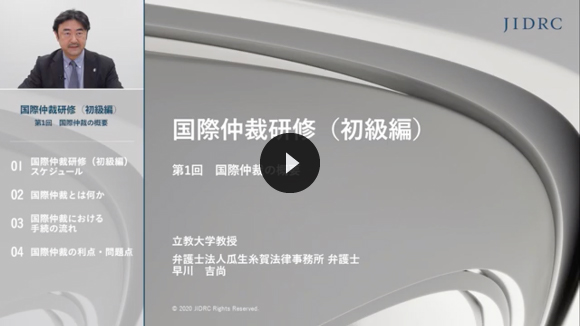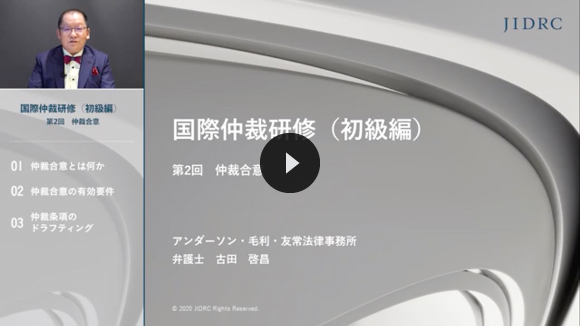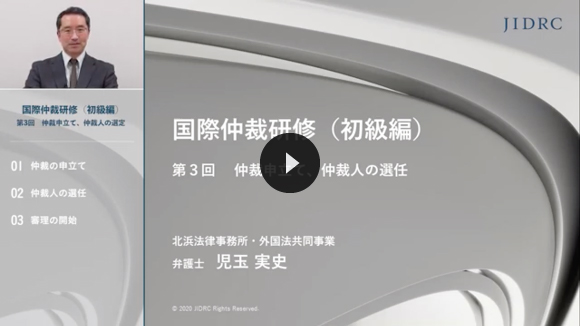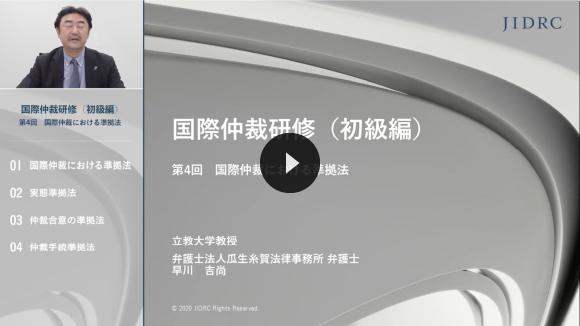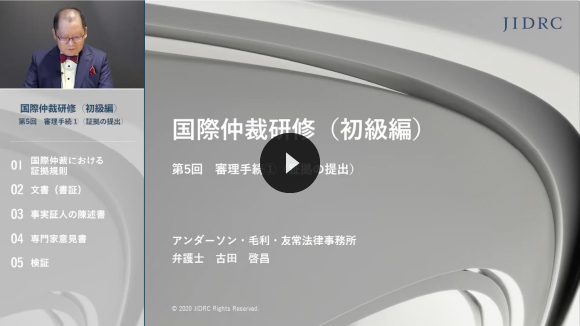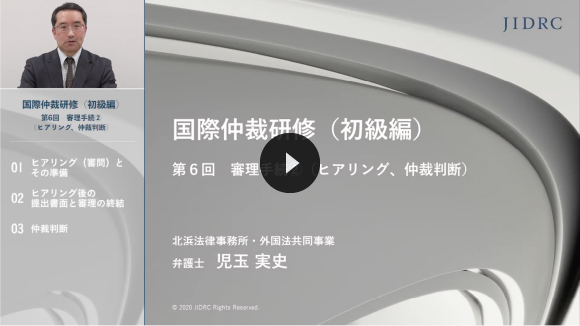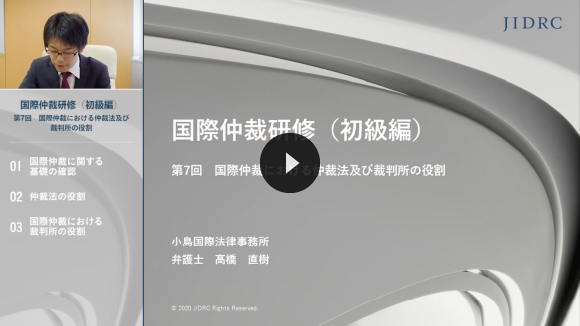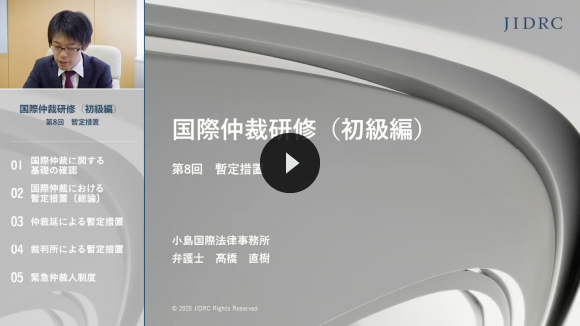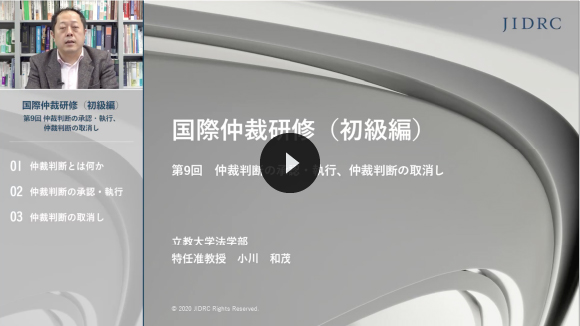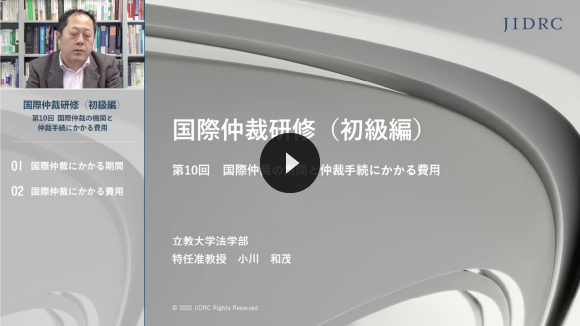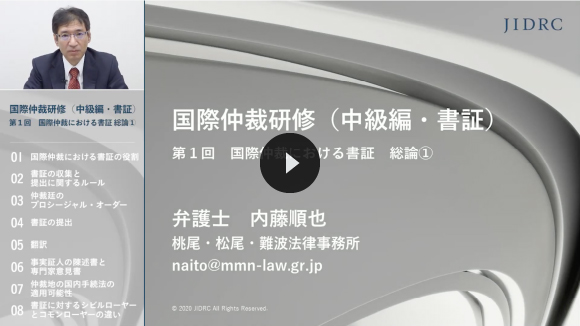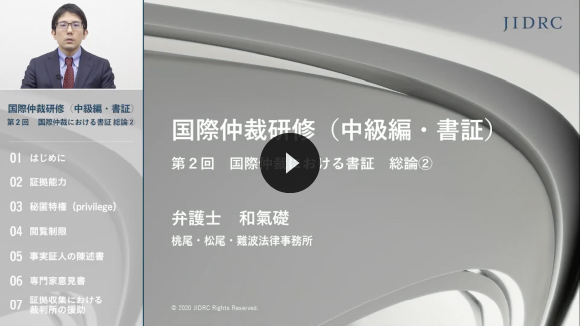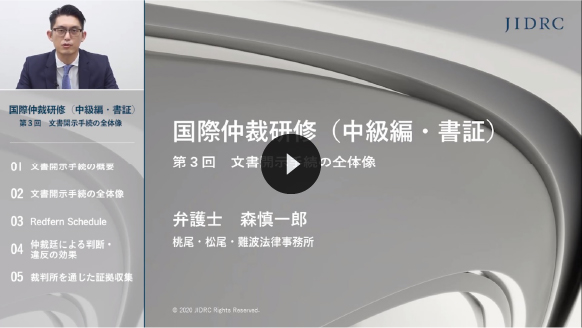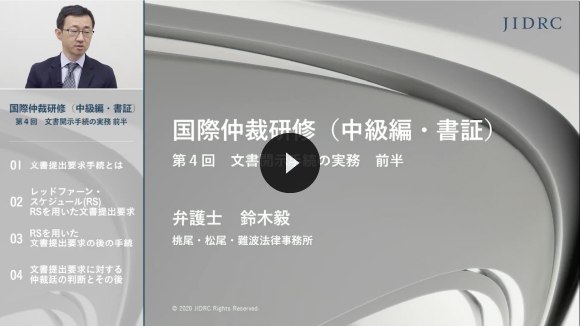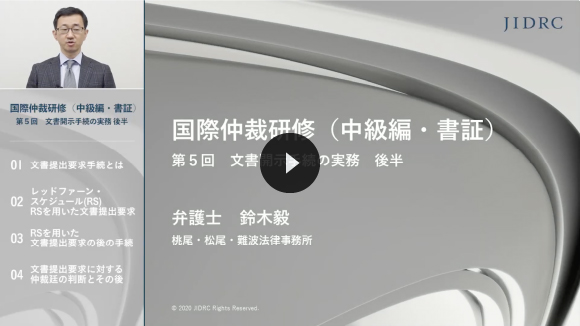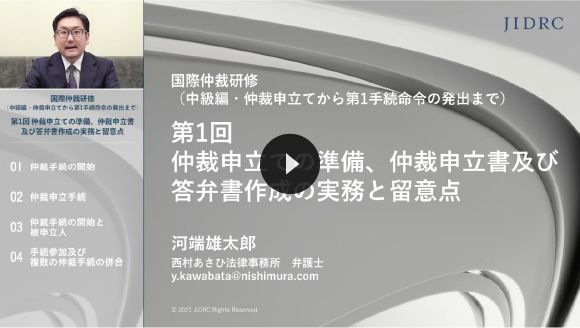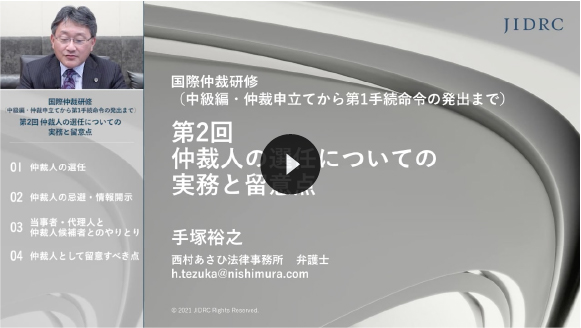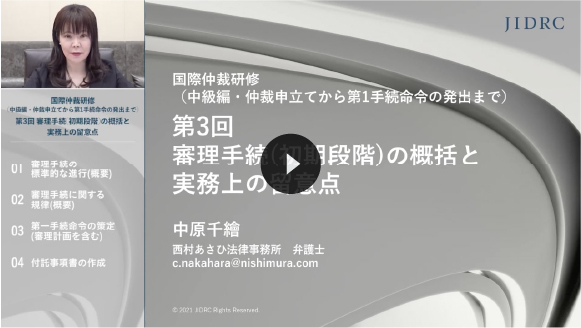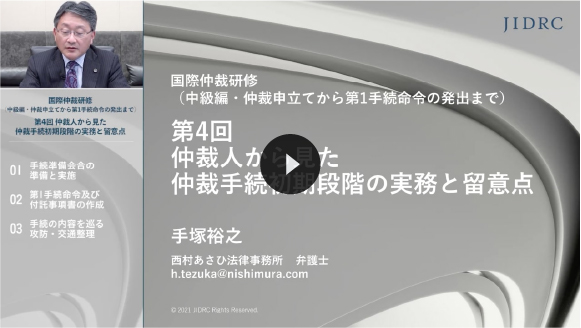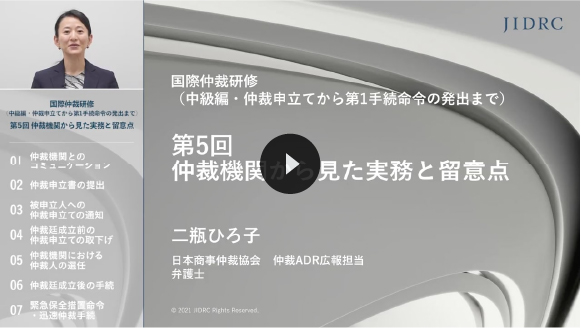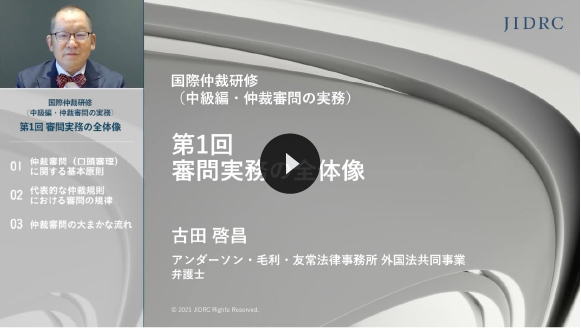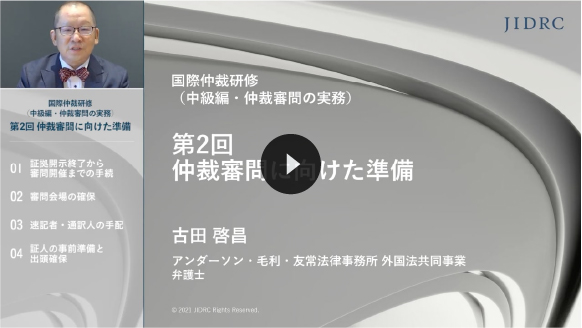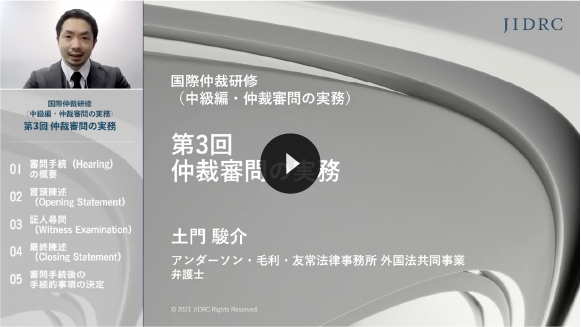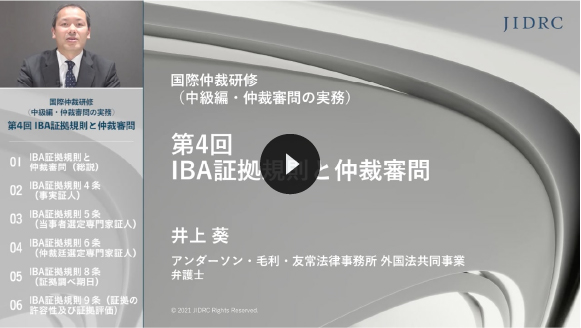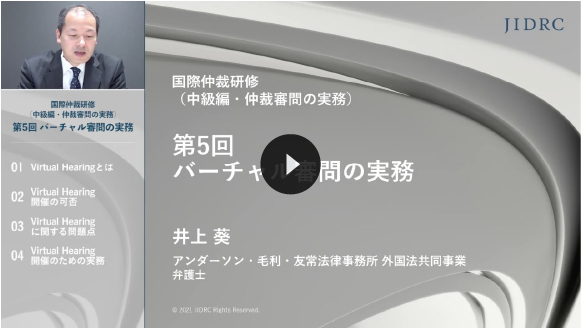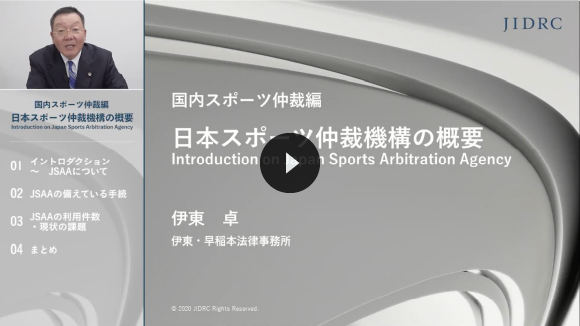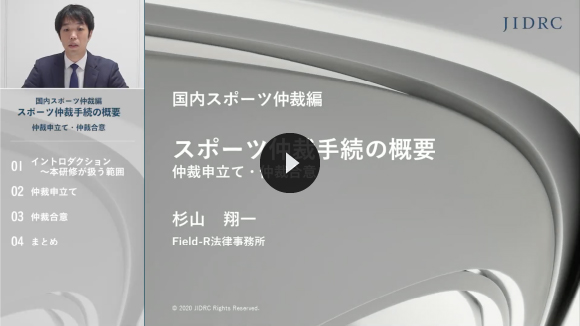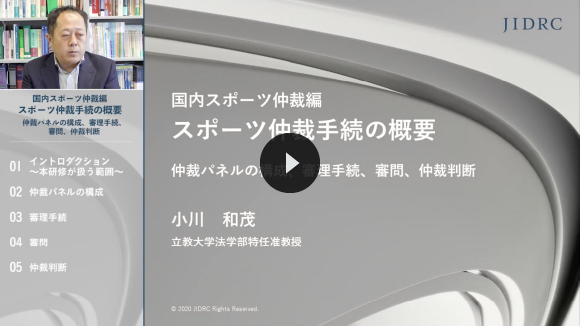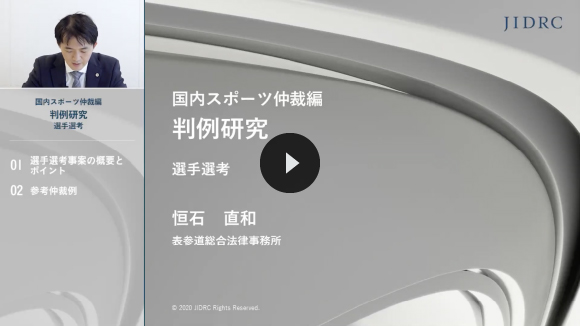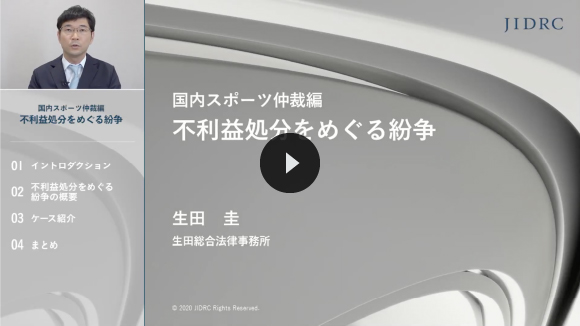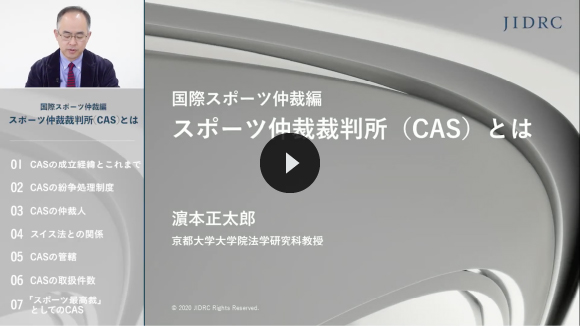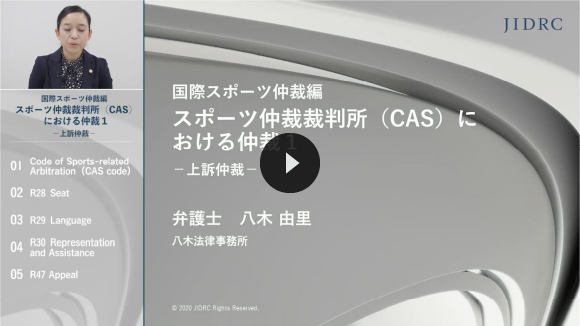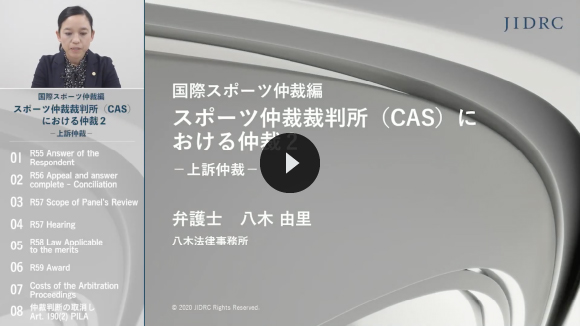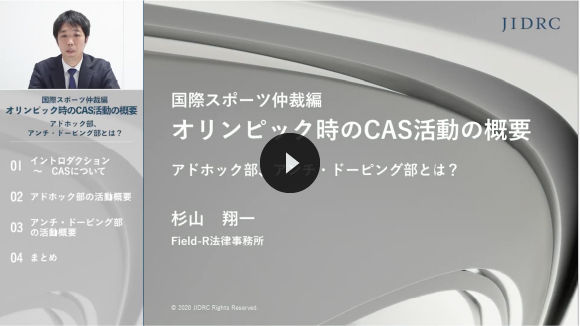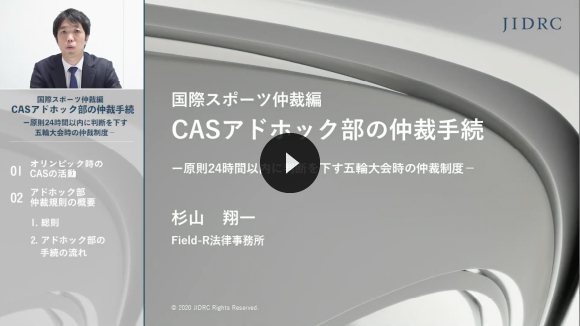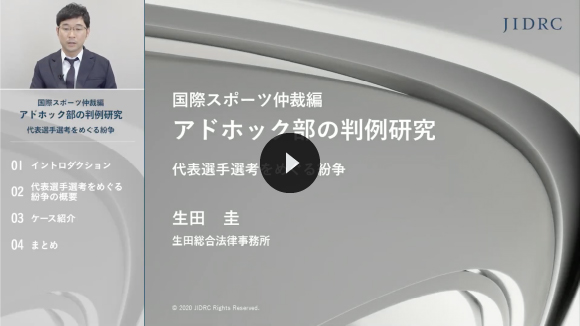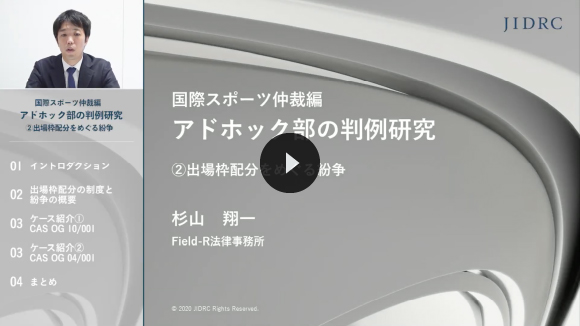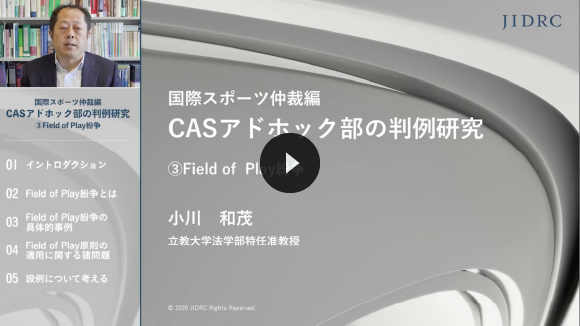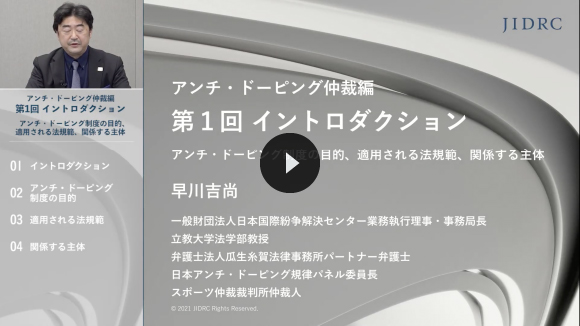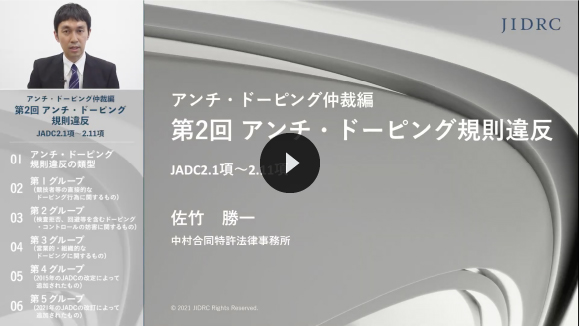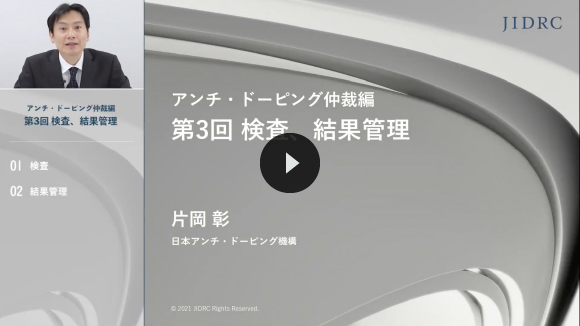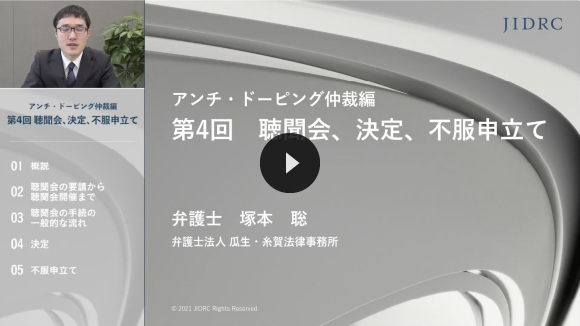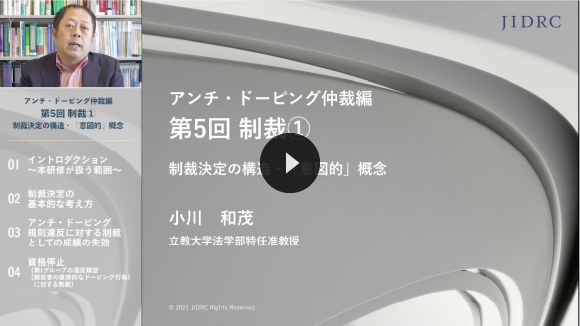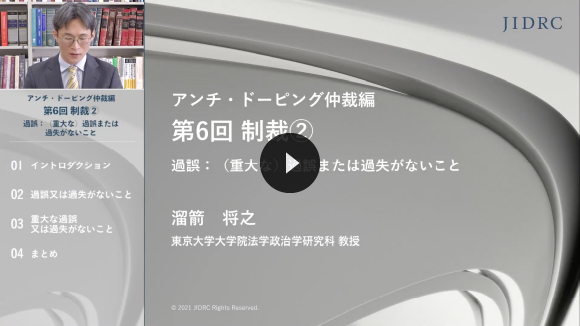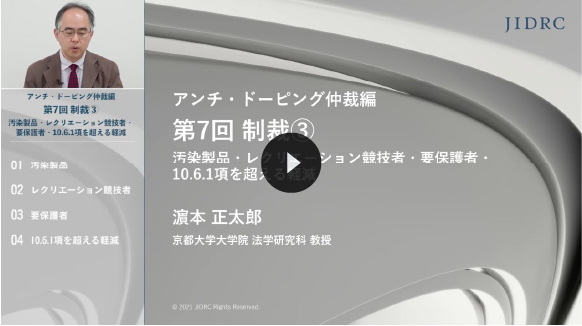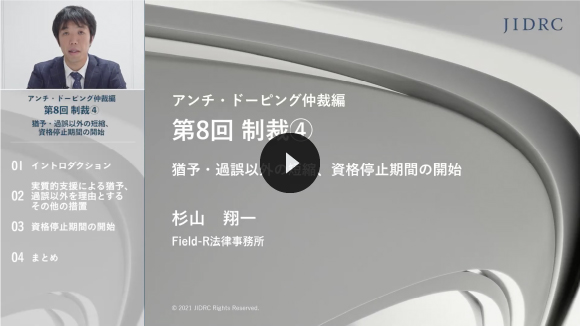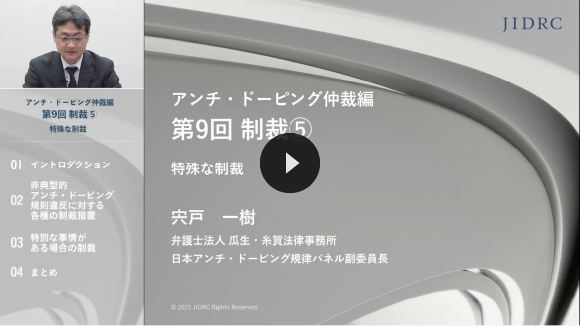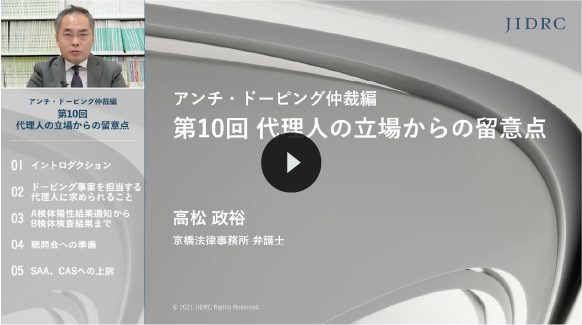NEWS
1. Establishment of a System Enabling Enforcement based on an Order for Interim Measures
– This allows a court to issue an enforcement approval order for an interim measure, which is an order by an arbitral tribunal to preserve rights and evidence until an arbitration award is issued.
– In judicial proceedings in Japan for obtaining enforcement approval orders for arbitral awards, if the court finds it appropriate, the court may decide not to require the submission of a Japanese translation of the arbitral award.
– In judicial proceedings in Japan for obtaining enforcement approval orders for arbitral awards, parties may file a petition in the Tokyo or Osaka District Court as well as in courts with original territorial jurisdiction.
2. Establishment of a System Enabling Enforcement based on Settlement Agreements resulting from mediation
– This allows a court to issue an enforcement approval order for a settlement reached in international mediation (International Settlement Agreement, “ISA”) as defined by the United Nations Convention on International Settlement Agreements Resulting from Mediation (“the Singapore Convention on Mediation”).
* Applicable to settlement agreements relating to commercial disputes
For details, please see the website of Ministry of Justice.
Functions
Businesses
 |
JIDRC began operating hearing facilities in Osaka in April 2018 and in
Tokyo in March 2020. However, having considered an appropriate
mode of business under and after the COVID-19 pandemic, we decided
to pursue a different approach. As from June 2023, we started
introducing independent facilities suitable for arbitration hearings
based on JIDRC's knowledge and experience of the operation of
arbitration facilities to date, as listed below. If you have any questions
about facilities for arbitration hearings, please directly contact the
facilities below or send an email to info@idrc.jp . |
|---|
Facilities in Tokyo
<Tokyo International Forum>
Tokyo International Forum is a convention and arts center located in Marunouchi, the heart of Tokyo, the capital of Japan. The Glass Building of the Tokyo International Forum has conference rooms (G401-G701) of various sizes from 26m 2 to 206m 2 , which can be used as arbitration hearing rooms, mediation rooms, or breakout rooms, according to users’ needs. Each room is soundproofed and wired and wireless LAN access can be arranged upon request. Parties may bring cameras for videoconferencing into each room or consult with the facility to arrange for cameras. For more information about the facility or to apply for a reservation, please contact the facility directly at the link below.
https://www.t-i-forum.co.jp/en/
<IINO Hall & Conference Center>
IINO Hall & Conference Center is a hall and rental meeting room facility operated by Iino Hall Co., Ltd. Iino Conference Center is directly connected to Kasumigaseki Station and offers various accesses to 5 stations and 12 train lines. IINO Conference Center has 10 venues of various sizes on the same floor, including Room A, Room B, Room C, Room D and Room E, which can be used as arbitration hearing rooms, mediation rooms, and breakout rooms according to users’ needs. Each room is soundproofed and has wireless LAN available. Parties may arrange for any necessary equipment, including cameras for videoconferencing, etc. For more information about the facility or to apply for a reservation, please contact the facility directly at the link below.
https://www.iino.co.jp/hall/en/
<TFAH (Tokyo Facilities for Arbitration Hearings)>
TFAH (Tokyo Facilities for Arbitration Hearings) is operated by Tokyo
Facilities for Arbitration Hearings Co., Ltd. and was established as a
dedicated facility for hearings in international arbitration.
Tokyo Facilities for Arbitration Hearings Co., Ltd. is a subsidiary of
U&I Advisory Service Co., LTD. U&I Advisory Service Co., LTD. is a
member of U&I Group together with a law firm Uryu & Itoga. Neither
entity has any relationship with the JIDRC.
TFAH has one Hearing Room and four Breakout Rooms that can be
used as arbitration hearing rooms, mediation rooms, and breakout
rooms. Each room is soundproofed and has wireless LAN available.
Parties may arrange for any necessary equipment, including cameras
for videoconferencing, etc. For more information about the facility or
to apply for a reservation, please contact the facility directly at the link
below.
Facilities in Osaka
<Grand Cube Osaka>
Grand Cube Osaka (Osaka International Convention Center) is an international conference center located at Nakanoshima in the center of Osaka, and it was also home to the JIDRC Osaka facility until March 2024. The facility has a track record with arbitration hearings. There are over 20 conference rooms ranging from about 40 m² to over 1000 m², and all are soundproof and lockable. Free Wi-Fi is available with an additional fee for LAN. In addition, there is a wide range of rental equipment available. For more information about the facility or to make a reservation, please contact the facility directly using the link below.
<MyDome Osaka>
MyDome Osaka is famous as an exhibition hall located in the Semba district, halfway between Osaka’s Kita (Umeda) district and Minami (Shinsaibashi/Namba) district, and it has eight conference rooms on the 8th floor. Most of the rooms have excellent soundproofing performance, enhanced Internet communication capabilities, and a track record of use in arbitration hearings. For more information about the facility or to make a reservation, please contact the facility directly using the
https://www.mydome.jp/mydomeosaka/
<The Osaka Chamber of Commerce and Industry>
The Osaka Chamber of Commerce and Industry (“OCCI”) is a traditional chamber of commerce and industry that was established in 1878, and its building is located in the Semba district (between the Umeda and Namba districts), which is Osaka’s traditional commercial district. You can choose a room with sufficient soundproofing from among the many rental conference rooms, and they also have enhanced Internet communication capabilities and a track record of use for arbitration hearings. Members of the OCCI can use the services at discounted rates. For more information about the facility or to make a reservation, please contact the facility directly using the link below:
Overview of Arbitration Related Legal System in Japan
1. Arbitration Act (2003 Act No.138)
The core of the legal arbitration system in Japan is the “Arbitration Act” enacted in 2003. As a general rule, the Arbitration Act is applied to arbitration procedures in the case that the seat of arbitration is in Japan (Article 3 of the Arbitration Act). This Act is enacted based upon the “UNCITRAL Model Law on International Commercial Arbitration (Model Law)” which was prepared by the United Nations Commission on International Trade Law (UNCITRAL) and upon which many countries in the world base their laws as a model.
The Arbitration Act of Japan is widely applied whether the case is domestic or international, or civil or commercial (Article 2 of the Arbitration Act).
In 2023, the Arbitration Act had revised(not enforced yet) with such purposes as reflecting the 2006 version of the Model Law. Japan is also a member of the Convention on the Recognition and Enforcement of Foreign Arbitral Awards (the so-called New York Convention). Japan is also a member country of multilateral treaties such as the ICSID Convention and the Energy Charter Treaty.
2. Involvement and Stance of the Courts of Japan Towards Arbitration
As a general rule, the court exercises its powers to arbitration procedures with Japan as the seat of arbitration only in the case where the Arbitration Act provides (Article 4 of the Arbitration Act). If there are any requests by a party in relation to provisional order disposition (Article 15 of the Arbitration Act) or examination of evidence implemented by the court (Article 35 of the Arbitration Act), the court will support the party and the arbitral tribunal, but the court will not become involved in arbitration procedures in other cases.
With respect to arbitration cases, there are court cases which state that common interpretations with the arbitration laws of other countries and internationally applicable interpretations should be aimed in the interpretation of the Arbitration Act of Japan, upon perceiving that the Arbitration Act based upon the Model Law indicates the legislative intent that domestic law discipline should have contents which are common with other countries to the extent possible (the Tokyo High Court decision of August 1, 2018, Kinyu Shoji Hanrei No.1551 p.13).
There are many court cases regarding arbitration agreements, annulment of arbitral awards, as well as recognition and enforcement of arbitral awards. For details, please see the separate PDF titled “Introduction to Japanese Arbitration Act with Court Cases.”
3. Arbitration Representation and Legal Arbitrator System
In Japan, representation rights at the courts in Japan are limited to attorneys admitted in Japan by the “Attorneys Act”; however, representation rights in international arbitration procedures with Japan as the hearing venue are widely open to foreign lawyers.
Specifically speaking, in Japan, the “Act on Special Measures concerning the Handling of Legal Services by Foreign Lawyers” (Act No.66 of 1986) provides for the handling of legal services within Japan by foreign lawyers. Under the said Act, foreign lawyers who fall under (i) or (ii) of the following may represent in the procedures of international arbitration cases in Japan.
(i) A person qualified as a “registered foreign lawyer” approved by the Minister of Justice and registered in the registry of the Japan Federation of Bar Associations (Article 5-3 of the Foreign Lawyers Act)
(ii) A foreign lawyer other than (i) who is engaged in work to perform legal services based upon his/her qualifications in a foreign country and who is requested and has accepted such arbitration case in that foreign country (Article 58-2 of the Foreign Lawyers Act)
Generally speaking, with respect to arbitration cases performed in accordance with due procedures under the Arbitration Act, persons other than attorneys admitted in Japan such as foreign lawyers are recognized to be able to perform activities as an arbitrator, and activities as arbitrators by persons other than attorneys admitted in Japan are also being widely performed in actual terms.
Introduction to Japanese Arbitration Act with Court Cases
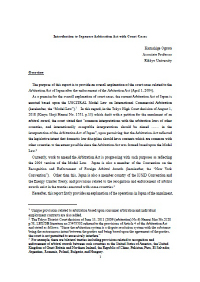
Virtual Hearing
オンライン審問
The JIDRC's Advisory Board's Subcommittee on Web-Based Hearings has prepared a reporton virtual and remote hearings, which are rapidly increasing in use due to the COVID-19, as well as a a sample agreement on virtual hearing.


